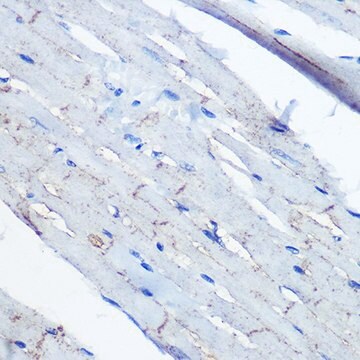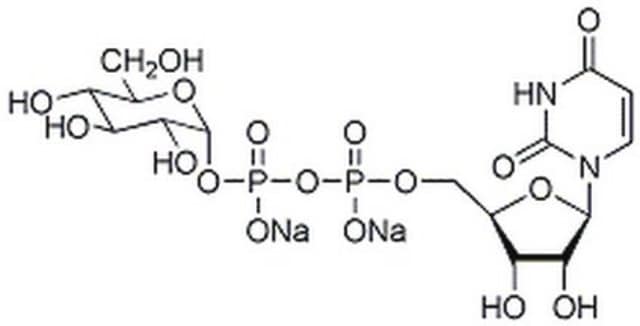MABC127
Anti-Ephrin-B2 Antibody
clone 10H1.1, from mouse
Synonym(s):
Ephrin-B2, EPH-related receptor tyrosine kinase ligand 5, LERK-5, HTK ligand, HTK-L
About This Item
Recommended Products
biological source
mouse
Quality Level
antibody form
purified immunoglobulin
antibody product type
primary antibodies
clone
10H1.1, monoclonal
species reactivity
mouse, rat, human
technique(s)
immunohistochemistry: suitable
western blot: suitable
isotype
IgMκ
NCBI accession no.
UniProt accession no.
shipped in
wet ice
target post-translational modification
unmodified
Gene Information
human ... EFNB2(1948)
General description
Immunogen
Application
Apoptosis & Cancer
Apoptosis - Additional
Immunohistochemistry Analysis: A 1:250 dilution from a representative lot detected Ephrin-B2 in IHC.
Quality
Western Blotting Analysis: 0.5 µg/mL of this antibody detected Ephrin-B2 in 10 µg of mouse lung tissue lysate.
Target description
Physical form
Storage and Stability
Analysis Note
Mouse lung tissue lysate
Other Notes
Disclaimer
Not finding the right product?
Try our Product Selector Tool.
Storage Class Code
10 - Combustible liquids
WGK
WGK 2
Flash Point(F)
Not applicable
Flash Point(C)
Not applicable
Certificates of Analysis (COA)
Search for Certificates of Analysis (COA) by entering the products Lot/Batch Number. Lot and Batch Numbers can be found on a product’s label following the words ‘Lot’ or ‘Batch’.
Already Own This Product?
Find documentation for the products that you have recently purchased in the Document Library.
Our team of scientists has experience in all areas of research including Life Science, Material Science, Chemical Synthesis, Chromatography, Analytical and many others.
Contact Technical Service








